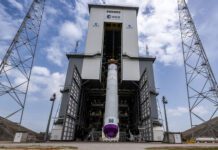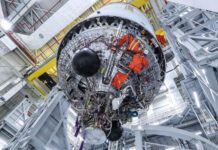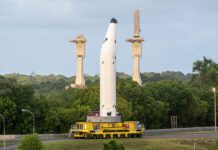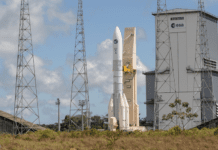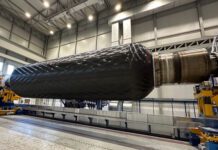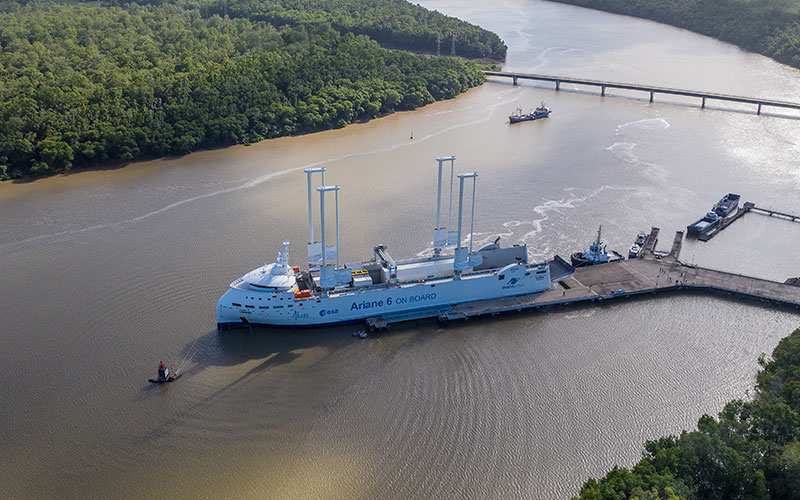
The cargo ship Canopée has completed a ten-day transatlantic voyage to deliver the core and second stages of the first Ariane 6 rocket to its launch site in French Guiana.
Canopée departed Le Havre, France, where the rocket’s core stage was loaded onto the 121-metre vessel on 10 February. It arrived off the coast of French Guiana late on 20 February. After waiting for high tide to come in, the vessel made its way up the Kourou River to Pariacabo harbour. The stages will now be offloaded and transported by road to the Ariane 6 launch vehicle assembly building just a few kilometres away.
While Canopée would ordinarily have transported all elements of Ariane 6 to the launch site, the fairing and booster elements for the rocket were sent ahead while the vessel was still entering service.
Operations to commence integration of the various components of the first Ariane 6 launch vehicle will now begin in full swing. This process is expected to proceed into April. The rocket will then be transported to the launch pad to complete final preparations for launch. During this period, the final qualification review will be concluded, which will certify that Ariane 6 is fit for flight.
If all goes well, the maiden Ariane 6 flight will occur in the second half of June. However, the European Space Agency has stated that it has allowed a 90-day “risk margin,” ensuring a maiden flight will occur no later than 31 July.
While preparations for the maiden flight of Ariane 6 are progressing smoothly, the results of an investigation into the early abort of a second stage long-duration hot fire test conducted on 7 December have not yet been released. ArianeGroup headed up the investigation, and results had been expected to be released in mid-January 2024. Despite the outstanding findings of the investigation, ESA has explained that the test was performed under exaggerated conditions to test the limits of its performance. The stage is unlikely to face similar conditions during its maiden flight.

